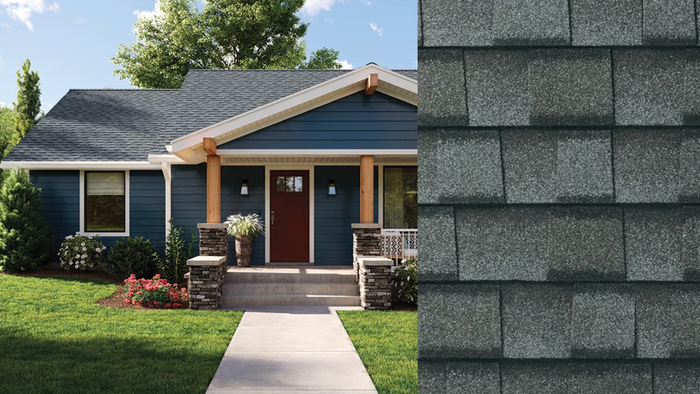Why Industry Orgs Oppose Federal Vaccine Mandates
NRCA and a host of other construction associations oppose federal vaccine mandates. Here's why.
October 22, 2021

As roofers struggle against severe labor shortages, industry leaders say a new obstacle to hiring is coming that will make things even more difficult while placing costly new burdens on employers: federal vaccine mandates. Federal contractors are already on notice about the mandates; a new OSHA vaccination rule looms for employers with 100 or more employees.
“We don’t really support the federal government picking winners and losers on the vaccine topic,” said Reid Ribble, NRCA CEO. “I just don’t think mandates are the best way to get to a vaccinated population. The best way is education. That’s where the government needs to be focusing its efforts.”
Currently, by Dec. 8, any roofer working on a federal contract must comply with the new vaccine mandates, according to federal guidance on the subject. That guidance, which is reportedly stricter than the proposed rules for private employers gives no option for the unvaccinated to submit to regular testing instead of getting inoculated. The federal guidance further states:
Federal contractors and subcontractors with a covered contract will be required to conform to the following workplace safety protocols:
COVID-19 vaccination of covered contractor employees, except in limited circumstances where an employee is legally entitled to an accommodation;
Compliance by individuals, including covered contractor employees and visitors, with the Guidance related to masking and physical distancing while in covered contractor workplaces;
Designation by covered contractors of a person or persons to coordinate COVID-19 workplace safety efforts at covered contractor workplaces.
Covered contractor employee means any full-time or part-time employee of a covered contractor working on or in connection with a covered contract or working at a covered contractor workplace. This includes employees of covered contractors who are not themselves working on or in connection with a covered contract but does not include contractor employees who only perform work outside the United States or its outlying areas. Covered contractor workplaces are locations controlled by a covered contractor at which any employee of a covered contractor working on or in connection with a covered contract is likely to be present during the period of performance for a covered contract.
Vaccine mandates are coming for all employers with more than 100 workers in the form of an emergency temporary standard from OSHA. In a letter to OSHA and the DOL, the Construction Industry Safety Coalition, composed of trade organizations from virtually all aspects of construction including NRCA, explained:
As part of that Plan, President Biden has directed OSHA to develop a rule to “require all employers with 100 or more employees to ensure their workforce is fully vaccinated or require any workers who remain unvaccinated to produce a negative test result on at least a weekly basis before coming to work.” The rule will also require employers with more than 100 employees to provide paid time off for the time it takes for workers to get vaccinated or to recover if they are “under the weather” post-vaccination.
That’s what has NRCA and other industry groups, not to mention roofers, so concerned—especially in light of the construction industry’s ongoing vaccination hesitation.
“Because OSHA’s COVID-19 vaccination and testing ETS is expected to be the most far-reaching standard ever issued by the agency, it is imperative that OSHA listen to input from the construction industry, which employs 7.4 million individuals,” said Ben Brubeck, ABC VP of regulatory, labor and state affairs. “Despite the efforts of a range of stakeholders, vaccine hesitancy remains an ongoing, complicated reality in countless industries. How the ETS is crafted will have significant, lasting impacts by driving workers away from larger firms and disrupting construction projects without raising the vaccination rate.
“. . . The COVID-19 pandemic has already created and accelerated a host of challenges for the construction industry, including a skilled workforce shortage, rising material costs, supply chain disruptions, job site shut-downs, additional health and safety protocols and new government regulations. The forthcoming ETS only adds to this long list of concerns."
Ribble added that with vaccines out now more than a year, those who have chosen not to get vaccinated are unlikely to change their minds.
“Roofing companies are living in that reality that people who want a vaccine are likely to have gotten it already, and those who don’t are not likely to get it. So, companies are fearful of having employees walk because of this mandate,” Ribble said. “We should focus on how to operate safely in an environment where people have not been vaccinated, which the industry has been doing since the pandemic.”
Ribble said ongoing supply chain issues have exacerbated the labor shortage, even forcing some roofers to lay off workers. At the same time, with severe weather and ongoing residential demand roofers have more work than they can handle. Ribble estimated the industry needs an additional 30,000 to 40,000 workers to meet the current demand.
Ribble echoed concerns laid out in the CISC letter. “The Plan leaves many unanswered questions. For example, who is responsible for paying for and managing weekly testing? Will employees be able to opt-out of testing for any reason, or only those reasons recognized by other federal law? What kind of tests will be permitted and what proof of testing will be required? What does “under the weather” mean for purposes of paid time off following vaccinations?”
CISC laid out six main concerns:
Workforce shortages
Employer and employee obligations for vaccination and testing
Paperwork burdens
Recordability of adverse reactions to the COVD-19 vaccine
Cost of paid time off for vaccinations and adverse reactions
Availability of testing kits
Despite those concerns, OSHA is expected to issue its new vaccination mandate rules in the coming weeks. Ribble said NRCA and the CISC continue lobbying for contractors but advised roofers to prepare for what’s coming. “There’s a lot of machinations going on behind the scenes to work out the details,” he said. “But they’re going to do something, I just don’t what it’s going to be.”
Even without government intervention many roofing firms are having to deal with vaccine requirements.
"We have clients that have already mandated either full vaccination or a negative test no more than 48 hours old," said Rod Petrick, president of Ridgeworth Roofing Co. Inc. and NRCA's chairman of the board. "We have informed our employees that they will need to comply with either the mandate or testing. If they choose not to comply it may lead to them missing a work opportunity. We did tell them that if they choose to not vaccinate we would do our best to keep them busy and placed on other projects. We are currently at 85% vaccinated and that was prior to any correspondence from us."
About the Author(s)
You May Also Like




